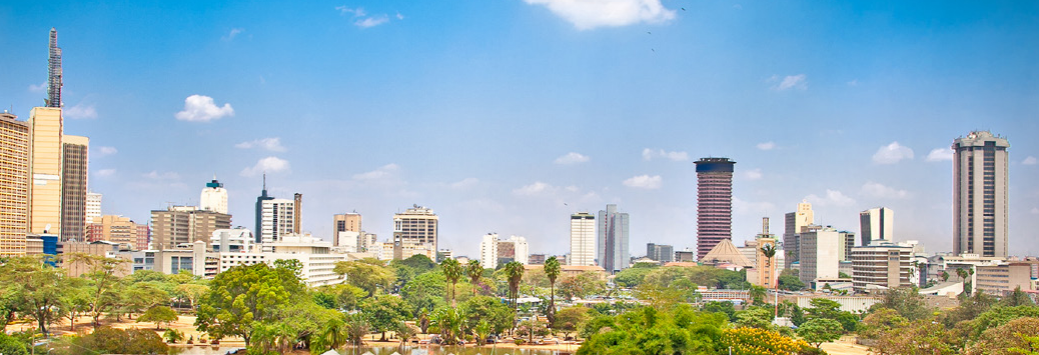NMS drafts contingency plan for Nairobi ahead of August 9 polls

Nairobi Metropolitan Services (NMS) and some stakeholders have developed a contingency plan for Nairobi County to guide in preparing for any eventualities that may arise after or during the August 9 polls.
In a statement on Monday, July 25, Gen. Mohamed A. Badi, the Director-General of NMS, said the plan is aimed at guiding on what needs to be done to ensure timely, consistent and coordinated preparedness and response in the Health Directorate in Nairobi County during and after the General Election which will be held in the next 10 days.
Further, he said that the main objective of coming up with the plan is to avert excess morbidity and mortality among Kenyans in high-risk sub-counties.
“Kenya has experienced violence in the previous elections but the Post-Election Violence (PEV) witnessed in 2007/2008 had its own lessons. The coming elections will be the third since the promulgation of the new Constitution in August 2010 which provides for the devolution of government to 47 counties. It is from this experience that Nairobi Metropolitan Services and other stakeholders initiated the plan,” the statement read.
A contingency plan is a course of action designed to help an organisation respond effectively to a future incident, event or situation, that may or may not happen. Sometimes it is known as a plan B or a backup plan because it can also be used as an alternative action if expected results fail to materialise.
The NMS contingency plan covers the pre-election period noted as August 1 to 8; the election day and period August 9 to 12; and the post-election period August 10, 2022, to February 2023.
The government is expected to spend KSh1 billion on the emergency activities during the electioneering period.
This amount will not only be used in provision of necessary equipment (ambulances, PPEs etc.), but also in training and hiring of relevant personnel during this crucial period. It will also be used in coordination, evaluation and monitoring of activities, sensitization of the members of the public among other activities that will need financing.
To avert excess mortality, the NMS will ensure timely and coordinated health prevention, early warning and response in collaboration with the government and all other relevant agencies.
“The contingency plan provides strategies for emergency and disaster management with focus on effective mitigation, preparedness, response and recovery. In the past, Nairobi County has experienced violence during national election time. This led to injuries, disabilities, general poor health, loss of lives, internal displacement of people, disruption of transport systems and economic loss,” Gen. Badi said.
“This contingency plan builds on our past experience and sets out standardised functions of the health sector on how to assess, analyse and manage the perceived risks,” he said.
Further, The NMS director-general said the plan is linked to and anchored on the national framework’s plans and strategies. Planning at the county and sub-county levels is thus critical to save lives, protect livelihoods and hence recovery from future emergencies and disasters.
He also added that the health sector anticipates and prepares for hazards that are likely to occur during and after the August 9 polls while allowing continuity of essential health care services.
“It emphasises on strengthening partnerships and inter-sectoral collaboration in preparedness and response to ensure a successful management of the challenges,” Gen. Badi added.
The plan also helps in identifying flexible options that would be adaptable to specific situations.
There were a series of meetings between the stakeholders while coming up with the plan. Among the stakeholders were: the Nairobi Metropolitan Services, Office of the County Commissioner- Nairobi, Malteser International, Kenya Red Cross, St Johns Ambulance, MSF France, FIDA Kenya, Africa Youth Trust, Rescue.co, CIHEB, Wangu Kanja Foundation and Emergency Medicine Kenya Foundation.
The plan has a number of potential health crisis issues that may occur during an electioneering period, among them are;
- Increased number of displaced populations beyond the capacity of the available structures.
- Increased morbidity and mortality due to non-communicable diseases.
- Increased mental health challenges e.g., substance abuse, suicide ideations, Post Traumatic Stress Disorder etc.
- Varied reported number of injured persons.
- Overstretched mortuaries and funeral homes.
- Increase in number of cases of electoral related Sexual and Gender Based Violence.
For hospitals which have been mapped for emergency response during the August 9 polls, they will be required to observe the underlisted key areas for effective response.
- Limit admissions e.g. elective surgeries to maintain 50 per cent bed capacity. This will allow accumulation of health commodities.
- Stock dry food e.g. wimbi, peas and cooking fat.
- Ensure enough stock of cooking gas and oxygen.
- Stop all staff annual leave to a week before and after the elections.
- Identify health facilities (HFs) that will remain open, especially bigger HFs. Identify and deploy staff who live near the HFs and assign them duties.
- Collaborate with security staff to guard the HFs – e.g. prison warders.
- Avail cash money – HFs to take impressions before elections.
- Hospital administrators to identify suppliers in case of emergency supplies.
As stated in the Chapter Four of the Kenyan Constitution, every person has the right to freedom and security. Majority of Kenyans are unable to protect themselves or their businesses especially during post-election violence. Therefore, the government and relevant agencies should come up with relevant mitigating measures to cushion Kenyans of all walks of life from chaos and mayhem that may arise during the electioneering period.

